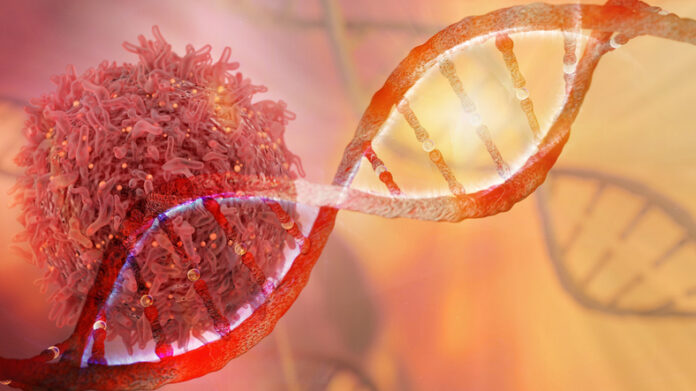
Antiviral, mutagenic enzymes that edit the genomes of cancer cells drive the development of early bladder cancer, researchers have discovered, with chemotherapy further contributing further mutations that hamper treatment success.
The team also revealed how chemotherapy resistance was further assisted by overactive genes located within abnormal, circular segments of DNA in tumors, which arise from complex rearrangements of the genetic material in these cells.
This extrachromosomal DNA (ecDNA) exists apart from chromosomes in the nucleus of tumor cells and may harbor hundreds of copies of cancer-driving growth genes.
The study, published in the journal Nature, sheds further light on the origins and progression of urothelial carcinoma, the main form of bladder cancer.
“Our findings define new fundamental mechanisms driving bladder cancer evolution—mechanisms that we can now think about targeting with therapies,” said joint senior researcher Bishoy Faltas, MD, chief research officer at Weill Cornell’s Englander Institute for Precision Medicine.
These therapies could include blocking ecDNA formation and using HER2-targeting drugs in certain patients.
Mutagenesis and DNA repair are constantly interacting processes that occur during cancer, resulting in distinct mutational signatures and extensive structural genomic changes.
One of the groups of mutagenic enzymes that edit messenger RNA are apolipoprotein B enzyme catalytic subunit (APOBEC)3 cytidine deaminases, which cause base-pair substitutions in the genomes of various human cancers, in particular urothelial carcinoma.
The enzymes initially evolved to disable an infecting retrovirus by editing its viral DNA but can sometimes mutate cells’ own DNA.
To investigate their role in cancer initiation, the researchers conducted whole-genome sequencing of 77 urothelial cancer tumors collected from 50 patients, including 28 pre-platinum and 49 post-platinum chemotherapy samples.
Results revealed the activity of two key mutagenic factors—APOBEC3 cytidine deaminases and platinum-based chemotherapy.
APOBEC3-induced mutations appeared early in urothelial cancer and were even present in pre-malignant urothelial tissue. Cisplatin and other platinum-based chemotherapies cause other, prominent bursts of mutations that likely gave the cancer cells an increased likelihood of surviving and spreading despite treatment.
The urothelial tumors often contained ecDNAs and the research showed that ec-forming structural variant events persisted after treatment and became more complex, incorporating new DNA segments, indicating they could drive resistance to therapy.
Further laboratory studies in an ecDNA version of a cancer-related gene called CCND1, which is involved in regulation of the cell cycle, confirmed that this extra-chromosomal configuration drives treatment resistance.
The findings define the fundamental mechanisms that drive the evolution of urothelial cancer, the investigators maintained in the report on their study.
“These new insights hold promise for future research and the development of innovative therapeutic strategies aimed at intercepting urothelial carcinogenesis and treatment resistance.”









![Best Weight Loss Supplements [2022-23] New Reports!](https://technologytangle.com/wp-content/uploads/2022/12/p1-1170962-1670840878.png)




